One of San Pedro’s most appealing qualities is that it’s not very popular. When I first decided to move here from Venice my neighbor, a realtor, suggested why.
“It’s so working class, just a lot of longshoremen, nothing to do there, hardly any art galleries, cafes or good restaurants…and it’s landlocked, hard to get to and so far away from everything…you’ll become a homebody!”
Since my father drove a truck, my mother rarely left the house, and I wanted an excuse to drive less, it sounded like home. And the law of supply and demand was on my side. If not much was happening here then property flipping and dozing might not be turning residents into transients. Housing prices might be, well, sort of real!
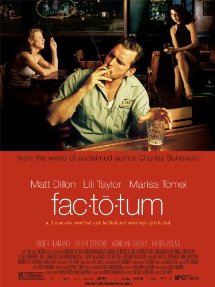
“Hank” loved Pedro. It was a utopia of the ordinary everyday, a stable haven for a seasoned writer and sanctuary from the stalking wannabes, as well as other writers. He shunned the absinthe-sipping literary salons for the beer-guzzling bar-bacchanalia that fleshed out his characters and inspiration. In fact according to Jim Christy he ventured to Europe only once, where he had many devoted readers. He was invited to appear as the guest of honor on a very popular TV show in Paris that was a venue for serious literary issues and important American writers. He arrived loaded, and when asked to give an opening statement, said: “I know a great many American writers who would like to be on this program. It doesn’t mean so much to me…” He then turned to a woman guest and asked her to show him more of her legs so he could decide whether she was a good writer! Bored and overheated from the lights, he finally ripped the microphone from his shirt and found the exit (The BUK Book, ECW Press, 1997).
Now if accurate this was Hank at least fulfilling his fans’ expectations, doing what his reputation required. But it was also around that time that he plotted his move to salonless Pedro where there was no need to worry about where he fit into or bypassed the Great Tradition, or about all the drop-ins. They surely didn’t disappear. A local franchise of idolaters thrived, but mostly from a distance. Many hadn’t a clue about who this guy was. Others imagined they saw him everywhere, especially in the joints. Victims of the “barfly” machine?
In a late poem, “Close to Greatness,” he anticipated the affectation: “…when a man is living many claim relationships that are hardly so…and after he dies, well, then it’s everybody’s party.”
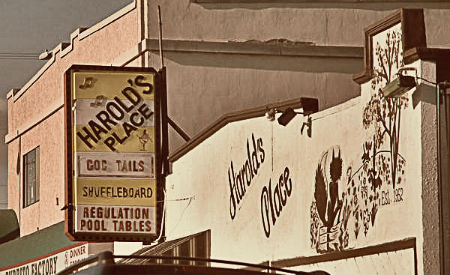
Hank’s presence and continuing existence here have reinforced the image of Pedro as a community quite different than those up the bay. And the joints are central to this difference. They hardly stack up to those trendy cafes in Santa Monica and Venice, well-lit where-its-happening spaces that invite you to join in. But then this is like comparing apples to oranges, and Pedro hasn’t been spared these testaments to gentrification anyway. Though there are fewer of them here. The market’s still cornered by Sacred Grounds on 6th, an enlightened habitat for natives oblivious to trends. And the bay area is certainly not absent joints, though it’s in the gentrifying genes to eliminate or “upgrade” them.
The Novel Café in Venice, for example, is the apple of many eyes, a macfeast for creative consultants lapping their way to the top, and especially for those wanting to hook up and playact the creative life. Kind of like living in 1920s Paris but without the writers and artists! Its name is the message. Come on in and pose as a writer.
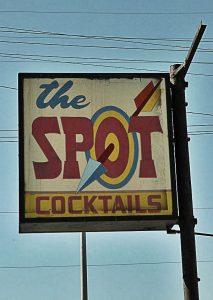
Sure, the clientele isn’t as software savvy in Rebel’s. The only laptopping you’ll find is when Jenny’s so hyped from her late shift at Dreams Club that she overdoses on a breakfast sandwich of instant neighborly gratification. No texting. It’s all oral communication, rapping in the moment with any lingo that works, except perhaps the Serbian. It’s a colorful micro-state of blue and red rebels who have no need to write manifestos since politics always sucks anyway. They’re similar to Camus’ rebels who worked through their own gulags and learned to exist in a world where many things can’t be changed. They find freedom in creative consults that cut through the crap.
Who needs a credential! The joints are dark and intimate, user-friendly spaces full of no-nonsense confessors. The space is the message. Posing is beside the point. You let your guard down and enter a story in motion too good to be true for the aspiring writer of real tales.
This is maybe why Hank was so productive, finding a lush pool of edited stories that matched the reality he knew so well during his Hollywood time. In his mind these joints must’ve been throwbacks to those days when he worked at the Post Office by day and through the demons by night at the Hollywood spots and in front of the “typer.” But living a settled life here, he had no need for them. And he’d stored up lifetimes of stories anyway. In the last few years before his death he cranked out stories and poems virtually non-stop.
The best of all worlds. And Pedro’s a working class town to boot, known as a place where people stay and thrive on building long-term bonds. An environment that nurtures family life, but also provides made-to-order spots, sort of purgatory parlors for getting in touch with the soul that the stellar sisters on the hill mercifully missed; confessionals for one-night stands suspended somewhere between Jesus and family life that unfortunately only bondo you through the week’s apocalypse.
Perfect places to ponder the irony that regular family life might breed saloons and brothels. Do they sponge up its imperfections? Like Italy. A steepled space with extended families that pray together but only rarely step out together, thanks to the seasoned encyclicals that play fast and loose with what matters. We weren’t named St. Peter for nothin. Via Italia is a sizable swatch of neighborhood in the southern hills where one of our ethnic founders prospers, and well away from the joints’ temptations at that.
Ideal conditions for Hank, who was once no fan of normal family life, having left home early to escape a father who ordained him a bum.
So what do folks in the joints have to say about Hank? Are they his loyal fans and readers? His books are certainly popular. Williams’ Books on 6th is usually out…
Rebel’s isn’t the same place at 7 AM as it is five hours earlier, at closing time. During this short span the factota change shifts. Actually, the change is noticeable already in the afternoon, and especially late afternoon when a younger crowd arrives that’s survived another 9-5. It’s an apparently happier group settling in for well more than an hour. But with gentrification on the creep the bump-munch-and-run crowd is more visible. Post-happy hour there’s more movement, like extended family members at a reunion sharing a pinch of their previous few years’ history. The shuffleboard competition assumes the ambiance of the X Games. Karaoke erupts into an anyone-can-do-it folksy playlist.
6:17 PM. Two gals and a guy in their late twenties or early thirties huddle the corner of the bar near the door like it’s their living room.
“What do you guys think of Charles Bukowski?”
“Who?”
“Charles Bukowski, the famous writer, lived here from 1978 until 1994 when he died.”
“What did he write,” one of the girls blurts out, “murder mysteries?”
“Kinda, you could say he was interested in exploring extreme emotional states…made a movie about his early life called Barfly, starring Mickey Rourke…”
“Oh, yeah, I think I heard of that,” the guy chimes in, “came out a few years ago?”
“Quite a few, back in the late 80s.”
“Oh, wrong guy…but well, think I heard something…yeah, he’s really cool…think my Uncle used to talk about him, wrote about women a lot?”
“Yeah, that’s the title of one of his famous books from the 70s…but what…”
“Buk!..the greatest,” a forties-something gentleman chimes in as he floats by.
“Why?” I manage, before he moves down the bar and settles into another story.
Meanwhile, the group of three fans out toward the juke disperses into the cackle. I turn to my right and see a fifties-something postal worker staring at a point somewhere within a three-foot circumference that includes my face.
“Never heard of the dude!”
I order a double and check the baseball scores on the screen. Before I can piece together my thoughts and ask another question, a woman appears in the doorway and glances around the bar, apparently looking for someone. Very attractive, in her late 30s or so, she doesn’t seem to fit. Like she’s exited the 110 from Hollywood and missed the turn for Trumps up in PV.
“Hey baby, didn’t I see you up at June’s last Friday?!…It’s Sonny,” a voice lurches from the crowd.
Her glances become more anxious. She looks around the bar for several seconds, hesitates, and then tip-toes through the party toward the rear, like she’s trying to avoid notice. This gets her noticed more quickly. She nears the end of the bar when a gentleman in his 60s, wearing dark sunglasses and mumbling something, meets her eyes while scrunching a piece of paper. Their looks lock as an argument breaks out over by the juke and all eyes train on them. She grabs his hand and escorts him to the exit…
7:13 AM. There’s something about being in a joint when it’s still light outside. Our collective conscience says we should be out doing things, performing our part in making society better. No one but the retired belong. Or the very young and restless who find every niche society’s parents say they shouldn’t, or just haven’t been able to get that job. Or, the non-nine-to-fivers. At least 18 years of schooling should get you on some shift somewhere. If not, then it’s back to a refresher course in the school of hard knocks. When you claim your stool as the sun rises, gorge your guilty pleasures. Take advantage of your reprieve. It can approximate enlightenment!
Not exactly like retreating from life’s daily trials to the mystery of mass. The mumblings that avoid eye contact and then erupt into ecstasy from the first shot are like the first prayers of the day answered. Though the spirituality that seems to circulate here is more like a sixth sense that’s survived the excesses of the first five, what’s left from all the energy spent in dodging the official spirit over the course of lives lived in pure devotion to the right things. A well-attended mass can rapture the worst heretics among us. Of course the mixed scent of incense, burning candles and deodorized flesh helps keep the lapsed in line. This is likely what delivers the rapt attention to the monotone sermon, buffers guilt and defers sin to a later date.
Here rapture is relaxed. Attention is activated by the smoggy coolness entering the open doors mixing with the fumes of hops and grains and residue of burning substances. Mystery is muted in the diversity of exchanged sermons. Catholic guilt is just another oxymoron. Something’s ready to happen.
There’s an ageless man in the corner who looks familiar. I’m sure I’ve seen him before. He laughs intermittently, gesturing out of control toward the stools as he tells himself stories. He’s at that soused stage where everything’s silly but manages to toss a lucid phrase here and there at the group, which pretends he doesn’t exist. Except that is for an occasional secret snicker followed by mocking encouragement to tell more stories. He then changes his expression, reflects for an instant, and throws back a shot. Like he’s on the verge of saying something profound, offering a final story. I approach him and he disappears…
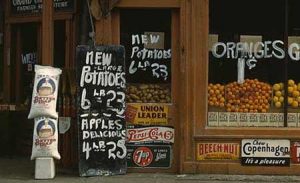
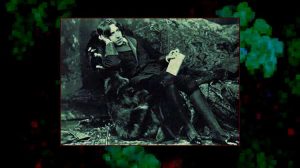

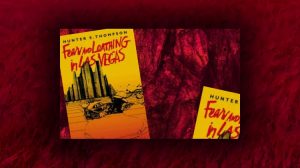

Pedro Girl says
Sure, why not?! Pedro is the ultimate “shiny object” for those fascinated by the beatnik approach to life. You can try to pick grapes like Kerouac on the road, but an outsider you will always be… Like so many before you. In non-glorified reality, everyone’s an outsider in Pedro… which is what feeds the beast… but where do you fit into the hierarchy?
The only way to fully appreciate what Pedro offers the soul is to grow up there… and then leave. “It was the best of times. It was the worst of times” The ultimate cliche, but ever so fitting for a town that is both enveloping and stifling. Pedro will choke you until you conform to its brand of nonconformity. Pedro will judge you for being on the “inside”, but wanting “out”. Your exit will be both exotic and frightening to them. (freakish) Pedro is not a charming beach town in the South Bay; it is an isolated island in the Port of LA. Yet, if you are (un)fortunate enough to be raised there, the people collected in your life will be with you, loyally, forever. My bonds have never been broken. If you’re from Pedro then you’re connected somehow, and they would rise up for you. It’s like a secret handshake. I would never raise a child there myself, but the chains of love from my childhood companions are tighter than any I have seen since leaving. No one’s LA life stories will compare to those of a Pedro person. (You simply cannot make that shit up… and it’s always better than fiction!) We’ve been through something. We survived a kind of hell, but not the worst hell. Pedro life creates a bond between souls that no outsider will ever fully know. By the way, if you’re not “from Pedro” then you will always be observing from the outside looking in… regardless of whether or not you’re a frequent fixture at Rebel’s. (…which my family owned in the 1940’s… Sicilian immigrants, of course.)
Pedro is a “Whale of a Town!”